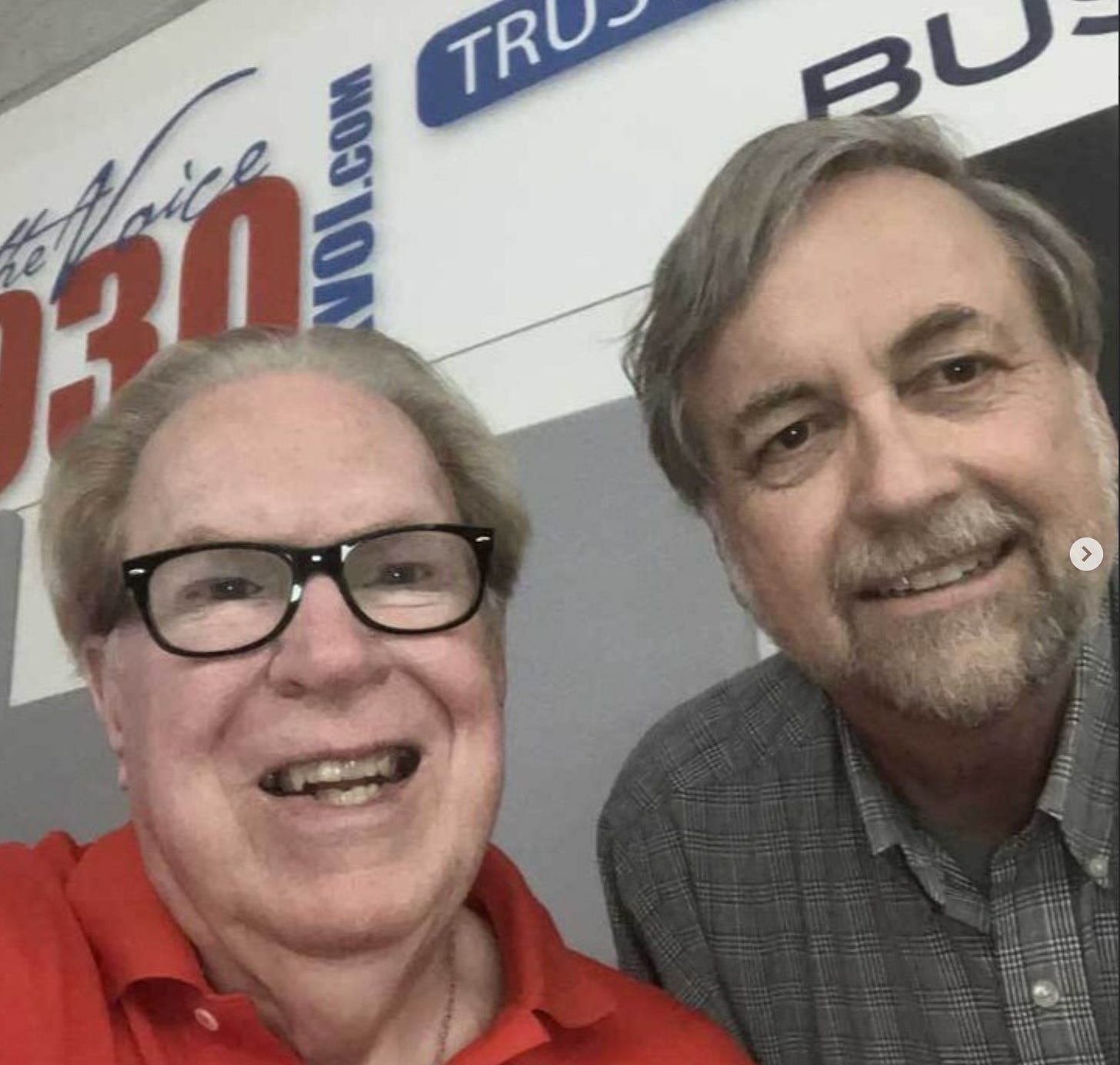🗺️ ¡El Barrio Unido!: Vice Mayor Dahl Pledges to Respect Westside Unity in Redistricting Battle
Buckmaster Show 8/23/24: 💰 Filling the Gap: Tucson's Proposed Sales Tax Increase Explained 🌳 Rooting for Resilience: Tucson's Urban Forest in the Age of Climate Change
Based on the 8/23/24 Buckmaster Show on KVOI-1030AM in Tucson, AZ.
"If people that are being added to my ward don't want to, I'm not going to. I don't want to vote to force them to." -Kevin Dahl, Ward 3
This will be a quote to remember when the redistricting committee makes its next recommendation, which last time aimed to split up the Westside Barrios by moving El Rio into Ward 3.
😽 Keepin’ It Simple Summary for Younger Readers
👧🏾✊🏾👦🏾
Today we're talking about some big stuff happening in Tucson. 🌵
The city wants to raise taxes 💰 to pay for things like police 👮♀️, firefighters 🚒, and parks 🏞️.
Some people are worried about crime 🚔, but the number of people caught crossing the border 🛂 is actually going down.
There's also talk about planting more trees 🌳 to help with climate change 🌡️, but we have to be careful about which trees we pick because of big storms 🌪️.
And some people are trying to make it easier to vote on transportation stuff 🚌🚗.
It's a lot to think about, but it's important for the future of our city! 🏙️
🗝️ Takeaways
💰 Tucson is proposing a half-cent sales tax increase to fund essential services
📉 Border apprehensions at multi-year lows, contradicting alarmist rhetoric
🌳 Climate change necessitates careful consideration of tree planting and maintenance
🚌 Progress in RTA Next negotiations signals potential for improved regional transportation
🗳️ Political landscape shifting with RFK Jr.'s endorsement of Trump
🏛️ Local issues like the Casa Alitas investigation highlight the need for accountability in the non-profit sector
🇺🇸 Comprehensive immigration reform remains elusive, with the focus shifting to a piecemeal approach
📚 Topics Discussed
🗺️ Redistricting Realities: Preserving Community Cohesion and Westside Unity
The discussion of redistricting in Tucson brings to light the delicate balance between population equity, community cohesion, and preserving historical unity in local governance. The recent push for redistricting, particularly concerning the westside barrios and El Rio, has ignited passionate debate and resistance from long-time community members.
Background: For over 50 years, the Westside barrios have united against various threats of gentrification and development. El Rio, more than just a park or golf course, has been the symbolic heart of this resistance since the 1970s. It's a place where generations have gathered, protested, and preserved their cultural heritage.
In 2022, an attempt was made to redistrict Barrio El Rio out of Ward 1 and into Ward 3, a move seen as an attack on the longstanding unity of the Westside communities. Now, in 2024, a new proposal is causing controversy. Councilwoman Lane Santa Cruz is pushing for creating more minority-majority wards. While this may sound progressive on the surface, critics argue that it fails to consider the unique history and unity of the Westside barrios.
Many view the proposal to potentially separate El Rio from the rest of the Westside barrios as culturally devastating and geographically nonsensical. One community activist said, "Dividing El Rio from the rest of the westside barrios is like cutting the heart out of a living body."
Critics of the redistricting plan point out that Tucson's city council elections are citywide, meaning the makeup of individual wards has limited impact on representation. They also question the sincerity of the diversity push, citing instances where white candidates have been endorsed over minority candidates in various races.
Vice Mayor Kevin Dahl's earlier stance on redistricting takes on new significance in this context. His statement, "If people that are being added to my ward don't want to, I'm not going to. I don't want to vote to force them to," aligns with the Westside community's desire to maintain their unity.
This situation highlights the complexity of redistricting in areas with strong historical and cultural ties. It underscores the need for a redistricting process that goes beyond mathematical equity to consider community cohesion, shared history, and the residents' will.
As Tucson approaches this redistricting decision, it faces a crucial question: How can the city balance the need for equitable representation with preserving long-standing community bonds and successful grassroots organizing? The answer will have profound implications for the future of Tucson's westside barrios and the legacy of community activism that has defined them for over half a century.
Keep reading with a 7-day free trial
Subscribe to Three Sonorans: News from the Borderlands Resistance to keep reading this post and get 7 days of free access to the full post archives.






